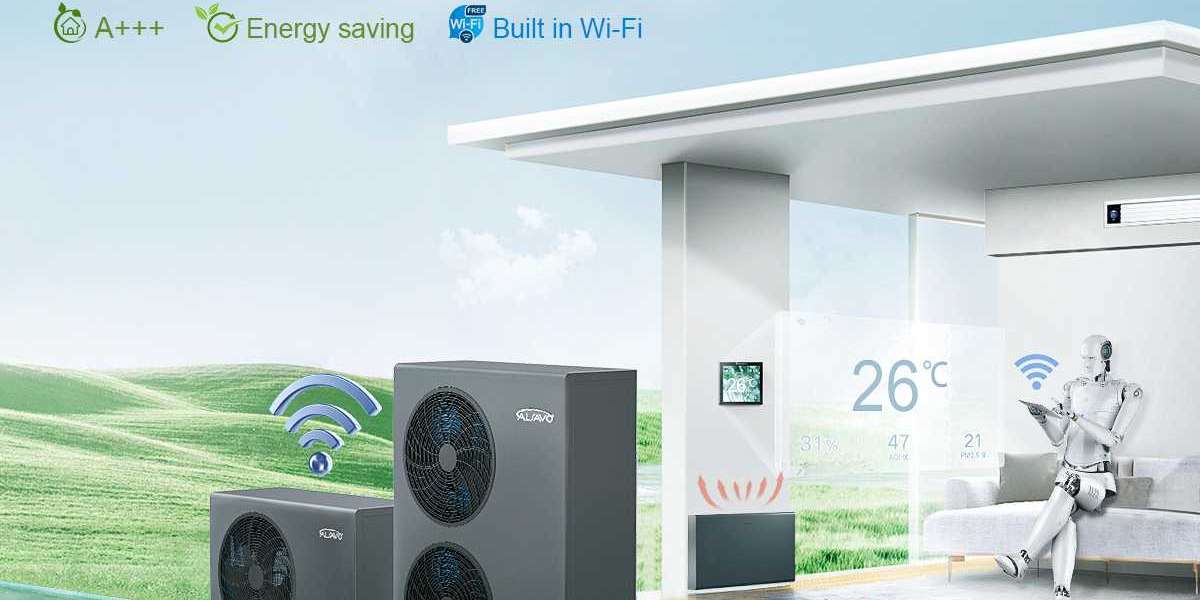1. What is HVAC?
1.1 Definition
HVAC is Heating, Ventilation and Air Conditioning, or heating, ventilation and air conditioning system. It is an important system in industrial, commercial and residential buildings that provides a comfortable and healthy indoor environment by controlling indoor temperature, air quality and humidity, and can also improve the energy efficiency of the building.
1.2 Heating systems
Such systems can use a variety of energy sources, such as natural gas, electricity, fuel oil and solar energy, to regulate indoor temperatures by generating heat through heaters that feed radiators or floor heating units in the heating system. Ventilation systems keep indoor air circulating and remove exhaust gases, toxic and harmful gases and odors to maintain air quality and comfortable temperatures. Air conditioning systems, on the other hand, provide a comfortable indoor temperature during the hot summer months. It works by using a chiller to move heat out of the room and create a low-temperature environment. It is also able to purify indoor air and provide a clean air environment to users.
The design, installation and maintenance of HVAC systems require specialized skills and strict standards. During the design process, factors such as the building's location, size, orientation and usage need to be considered and the system needs to be customized to increase efficiency and energy savings levels. During installation and maintenance, it is necessary to follow relevant regulatory standards and safety measures, regularly check the working status of the system, and make timely repairs and replace equipment to ensure that the system can operate continuously and efficiently.
HVAC systems play a significant role, not only to provide a healthy and comfortable indoor environment and promote production and living, but also to save energy and reduce carbon emissions, making an important contribution to sustainable development.
Air source heating heat pump is also an important part of HVAC system, which can be regarded as a new energy source. It has many advantages compared with traditional gas heating methods, such as high efficiency and energy saving, environmental protection and low carbon, safety and reliability, etc. Air source heating heat pump is a heat pump system that uses air as a heat exchange medium to produce high-quality, high-energy heat energy for heating or hot water consumption through the collection and conversion of low-temperature heat energy from the air.
2. Air source heating heat pump is a new energy source
Air source heating heat pump is a new type of energy-saving and environment-friendly heating method, which mainly uses the low-temperature heat energy in the air for heating, and hardly produces any pollution to the environment during the use. Compared with traditional duct heating, air source heating heat pump has higher efficiency and lower energy consumption. Due to the use of ambient air resources to provide energy-saving and environmentally friendly heating methods, it has received great support and promotion from relevant government departments. In HVAC systems, air source heating heat pumps are an advanced component that is particularly suitable for the heating needs of new buildings. With comprehensive consideration in energy utilization, environmental protection and economy, it will have a positive effect on energy-saving, environment-friendly, economic and efficient construction and sustainable social development.
2.1 From the perspective of new energy
the use of air-source heating heat pumps will not cause safety hazards such as gas explosions or smoke, and they do not require a large amount of energy to be paid to the state year-round. The energy consumed by the air source heating heat pump mainly comes from the ambient air, which is universal, free and pollution-free, so its use cost will be much lower than the traditional heat supply method, and it will not produce any pollution to the environment.
2.2 From the perspective of policy and environmental protection
the promotion and application of air source heating heat pump is in line with the country's advocacy of the use of new energy, because it can use environmental air resources to provide energy-saving and environmentally friendly heating methods, has been greatly supported and promoted by the relevant government departments, there are more and more professional air source heat pump manufacturer, I believe that in the future, with the gradual improvement of technology and cost reduction, the air source heating heat pump The popularity rate will gradually rise and become one of the representatives of new energy-saving and environmentally friendly heating methods.
Air source heating heat pump is not only an important part of the HVAC system, but also one of the representatives of new energy sources. Its rise and popularity has a positive effect on promoting environmental protection and low carbon, energy saving and emission reduction, and stabilizing social energy security.
Duct heating and air source heat pumps are both important components of HVAC systems, and there are certain connections and differences between them.
3. Duct heating and air source heat pump comparison
3.1 From the point of view of the way of use
duct heating is a traditional heating method, mainly through hot water or steam through the pipe radiator to supply heat to the room. Air-source heat pumps, on the other hand, are a new type of heating method that provides heat to the room by using the heat energy in the air for heating.
3.2 In terms of efficiency and energy savings
The difference between the two is also very obvious from the point of view of efficiency and energy saving. Ducted heating requires special boilers or other heating equipment that consumes a lot of gas or electricity to heat the room, and therefore consumes more energy and is less efficient. Air-source heat pumps, on the other hand, work more efficiently in terms of energy utilization because they can use the heat energy in the environment for heating, consuming relatively less energy and being more efficient, which greatly extends the service life of the equipment.
3.3 From the perspective of environmental protection
From the perspective of environmental protection, air source heat pumps hardly produce any pollution to the environment, which is more in line with the needs of contemporary environmental protection development, while duct heating produces a lot of exhaust gas during the combustion process, which is polluting to the environment.
In summary, duct heating and air source heat pump have their advantages and disadvantages, but the use of air source heat pump is more efficient, environmental protection, energy saving, is a more advanced HVAC system in a heating method. Of course, in existing buildings, the air conditioning system introduced by duct heating is also essential. Therefore, the choice of building heating method needs to be selected according to the specific situation, combined with the actual needs and equipment use requirements, in terms of energy use, environmental protection, economy and other aspects of comprehensive consideration, in order to effectively meet the building heating needs.
For more information, please contact heat pump companies









